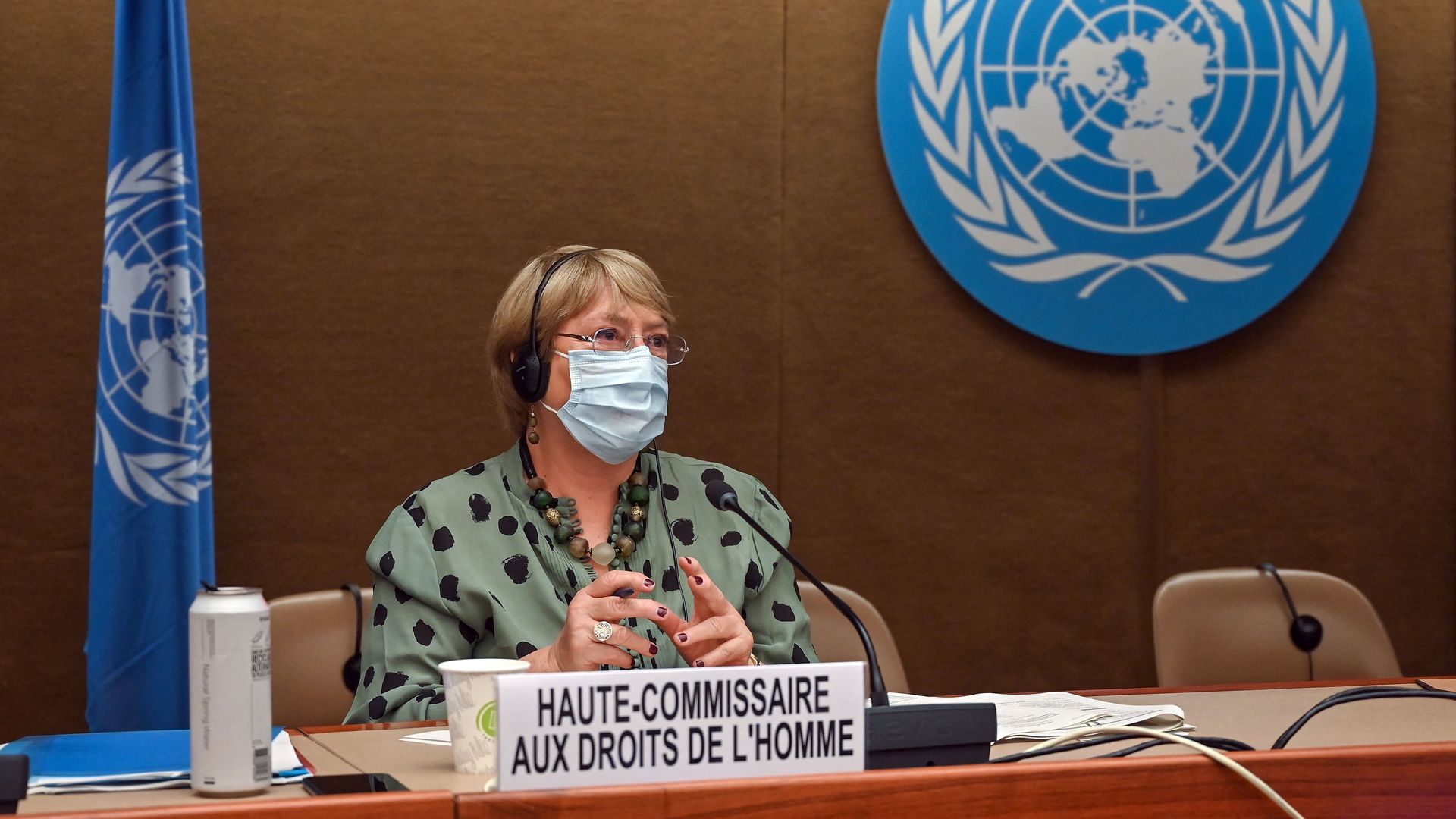Jun 28, 2021 - Politics & Policy
UN human rights chief calls for "transformative" reparations in George Floyd report
Add Axios as your preferred source to
see more of our stories on Google.

Photo: FABRICE COFFRINI/AFP via Getty Images
Add Axios as your preferred source to
see more of our stories on Google.

Photo: FABRICE COFFRINI/AFP via Getty Images